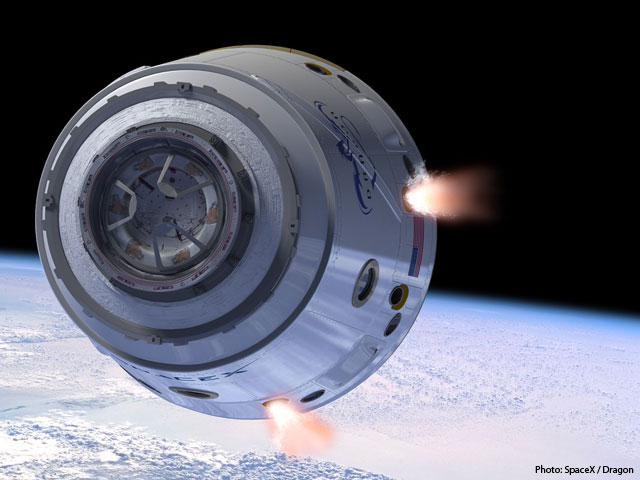Romney, Gingrich Tout Commercial Spaceflight in Republican Debate

Breaking space news, the latest updates on rocket launches, skywatching events and more!
You are now subscribed
Your newsletter sign-up was successful
Want to add more newsletters?

Delivered daily
Daily Newsletter
Breaking space news, the latest updates on rocket launches, skywatching events and more!

Once a month
Watch This Space
Sign up to our monthly entertainment newsletter to keep up with all our coverage of the latest sci-fi and space movies, tv shows, games and books.

Once a week
Night Sky This Week
Discover this week's must-see night sky events, moon phases, and stunning astrophotos. Sign up for our skywatching newsletter and explore the universe with us!

Twice a month
Strange New Words
Space.com's Sci-Fi Reader's Club. Read a sci-fi short story every month and join a virtual community of fellow science fiction fans!
The top two contenders for the Republican presidential nomination pushed for further privatization of spaceflight during Monday's (Jan. 23) debate in Florida.
Both Mitt Romney and Newt Gingrich stressed the importance of space exploration for the United States, saying a strong space program helps develop key technologies and inspires young people to study science and engineering.
But during the debate, held at the University of South Florida in Tampa, neither candidate said giving NASA more money was the right way forward.
Romney criticized President Obama for failing to give NASA a mission or a vision. Romney advocated creating a coalition — including the president and leaders from the military, academia and the business community — that would set NASA's course. [Vote Now! The Best Spaceships of All Time]
"Bring them together, discuss a wide range of options for NASA, and then have NASA not just funded by the federal government but also by commercial enterprises," the former Massachusetts governor said, responding to a question from a moderator about whether space exploration should be a priority.
"Let's have a collaborative effort, with business, with government, with the military as well as with our educational institutions," Romney added. "Have a mission, once again excite our young people about the potential of space, and the commercial potential will pay for itself down the road."
Gingrich was then asked whether he, as president, would put more federal money toward the goal of sending astronauts to Mars as soon as possible. The former Speaker of the House said he would use federal money to greater effect — instituting, for example, a series of prizes to encourage space exploration.
Breaking space news, the latest updates on rocket launches, skywatching events and more!
"Most of the great breakthroughs in aviation in the '20s and '30s were the result of prizes. Lindbergh flew to Paris for a $25,000 prize," Gingrich said. "I would like to see vastly more of the money spent encouraging the private sector into very aggressive experimentation."
Some of those prizes, he added, might reward getting humans back to the moon, sending them to Mars, building space stations and developing the commercial spaceflight industry.
"There are a whole series of things you can do that could be dynamic that are more than just better government bureaucracy," Gingrich said. "They're fundamentally leapfrogging into a world where you're incentivizing people who are visionaries, and people in the private sector to invest very large amounts of money in finding very romantic and exciting futures."
Gingrich also implied he would trim NASA's budget, which currently represents roughly 0.5 percent of the federal budget.
"I'd like to see a leaner NASA," he said. "I don't think building a bigger bureaucracy and having a greater number of people sit in rooms and talk gets you there."
Texas congressman Ron Paul and former Pennsylvania senator Rick Santorum also participated in the debate, but neither one was given time to address the two space-related questions.
You can follow SPACE.com senior writer Mike Wall on Twitter: @michaeldwall. Follow SPACE.com for the latest in space science and exploration news on Twitter @Spacedotcom and on Facebook.

Michael Wall is a Senior Space Writer with Space.com and joined the team in 2010. He primarily covers exoplanets, spaceflight and military space, but has been known to dabble in the space art beat. His book about the search for alien life, "Out There," was published on Nov. 13, 2018. Before becoming a science writer, Michael worked as a herpetologist and wildlife biologist. He has a Ph.D. in evolutionary biology from the University of Sydney, Australia, a bachelor's degree from the University of Arizona, and a graduate certificate in science writing from the University of California, Santa Cruz. To find out what his latest project is, you can follow Michael on Twitter.
